Point in Time Count in 2023 showed 110 people homeless with local expense of $5 million
An entire community is impacted by housing conditions.
The whole community can be engaged in working toward housing diversity and reducing homelessness, according to speakers who addressed a wide range of housing issues at the third annual Community Meeting on Housing and Homelessness in Wayne County held at First Presbyterian Church's Bruch Hall.
One of dozens of statistics related to the topic calculated the cost of homelessness to a community based on associated hospitalization and medical treatment, mental health treatment and hospitalization, criminal justice system involvement and emergency shelter and social service supports.
A person experiencing homelessness may cost a taxpayer an average of $45,530 a year in supportive services, said James Fox, CEO of Community Action Wayne/Medina and president of the Wayne County Housing Coalition.
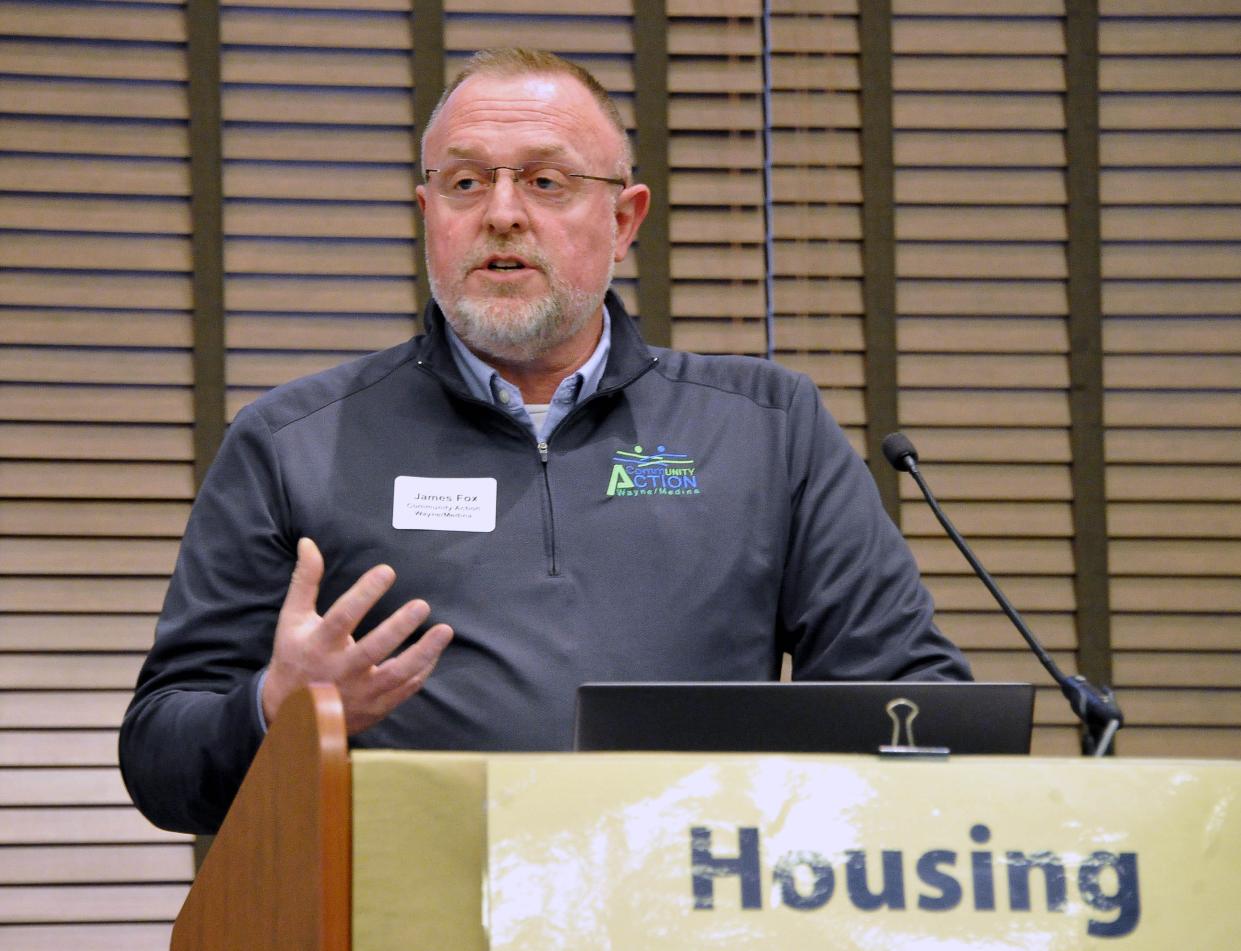
The Wayne County Point in Time Count − a one-day-a year county-wide tally − held on Jan. 23, 2023, showed 110 people homeless at that time − either unsheltered, or sheltered at OneEighty, the Salvation Army or the Severe Weather Shelter − at an estimated annual local expense of about $5 million.
What "keeps me up at night," Fox said at Thursday's presentation, is the high-risk population at "imminent risk" of losing housing within 14 days because they don't have the resources or support to obtain other permanent housing.
Citizens can engage in effort to solving housing problems
Fox advocated, "Be champions of this process" of solving housing problems, referring to opportunities for citizen engagement.
Included on the list were volunteering time at the Severe Weather Shelter and donating funds, meals or supplies through Homeward Bound; becoming a landlord in Wayne Metropolitan Housing's voucher program; donating property for rehabilitation and sale through Community Action Wayne/Medina; and donating supplies and time for One Eighty's outreach programs, among others.
"We want to highlight partnerships and collaboration," Fox said. "The collaboration in this community is amazing," and not to be taken for granted.
Fox cited the misconception individuals needing housing are either not working or are lazy.
In actuality, he said, about 80% are either employed, disabled or seniors − 33% in the labor force, 23% disabled; and 27% seniors.
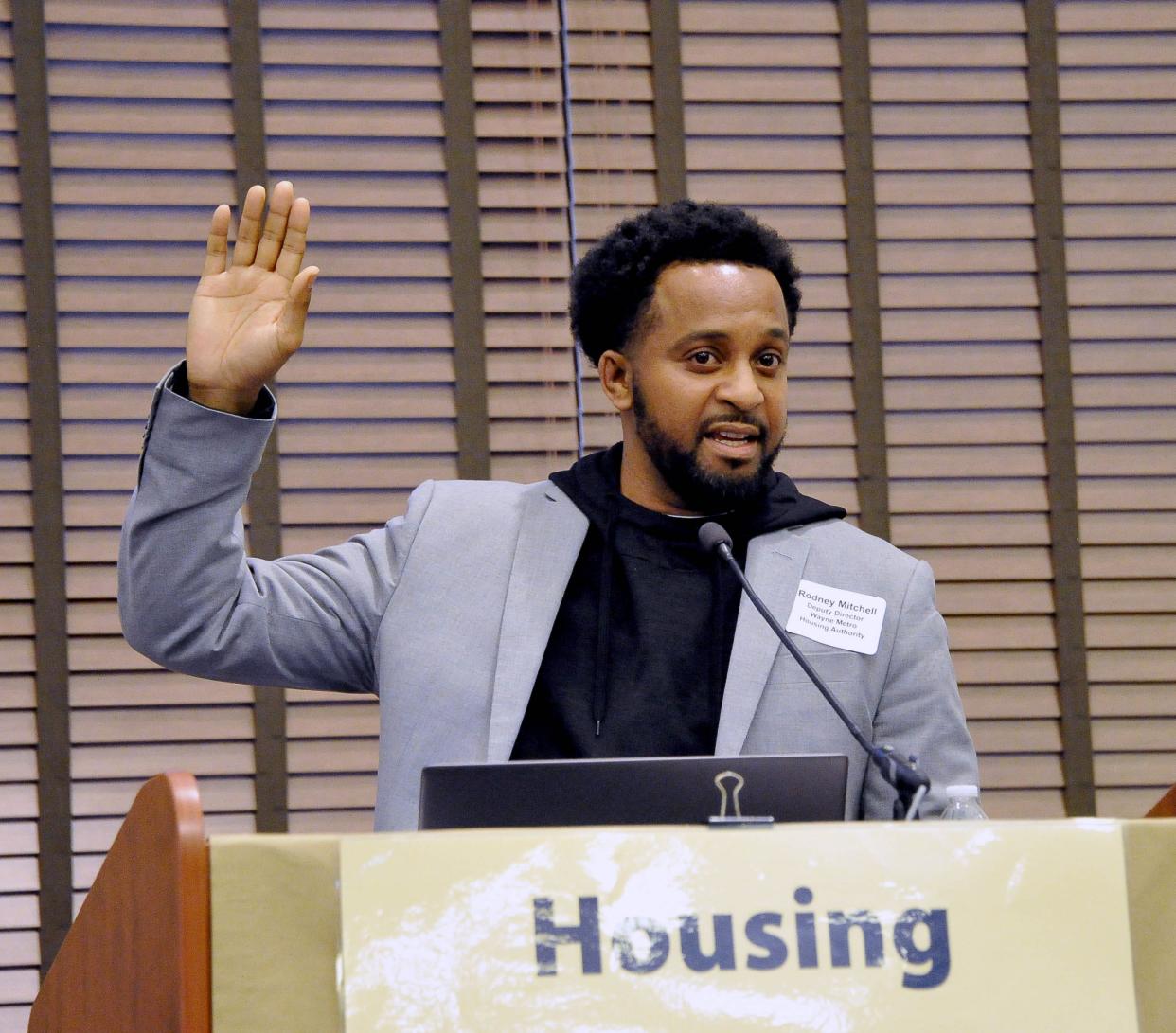
High number of people on housing waiting lists
Rodney Mitchell, the deputy director of Wayne Metropolitan Housing Authority, said the agency's two major programs − public housing and Housing Choice Voucher/Section 8 − serve 900 families seeking assistance for help with rent.
Other statistics provided by Mitchell showed 13% of 791 families reporting no income; and 62% reporting receiving SSD ( Social Security disability insurance)/SSI ( supplemental security income), according to Housing Choice Voucher data.
As of March 19 of this year, 1,205 applicants were on the WCMH waiting list for Section 8 housing − 79% of whom are considered to have extremely low income; 54%, families with children; and 14%, families with disabilities.
Applicants for the public housing waiting list as of the same date totaled 1,291 − 82% with extremely low income; 38%, families with children; and 16%, families with disabilities.
In February the median home listing price in Wooster was $280,000. The average apartment rent in Wooster in April is $722 for a studio, $803 for one bedroom, $1,057 for two bedrooms and $1,062 for three bedrooms.
One of the greatest needs to address the housing problem is landlords, Mitchell said.
Other needs include supportive housing − affordable housing combined with services helping people who have chronic physical and mental health issues to maintain housing and receive appropriate health care, according to the Center on Budget and Policy Priorities.
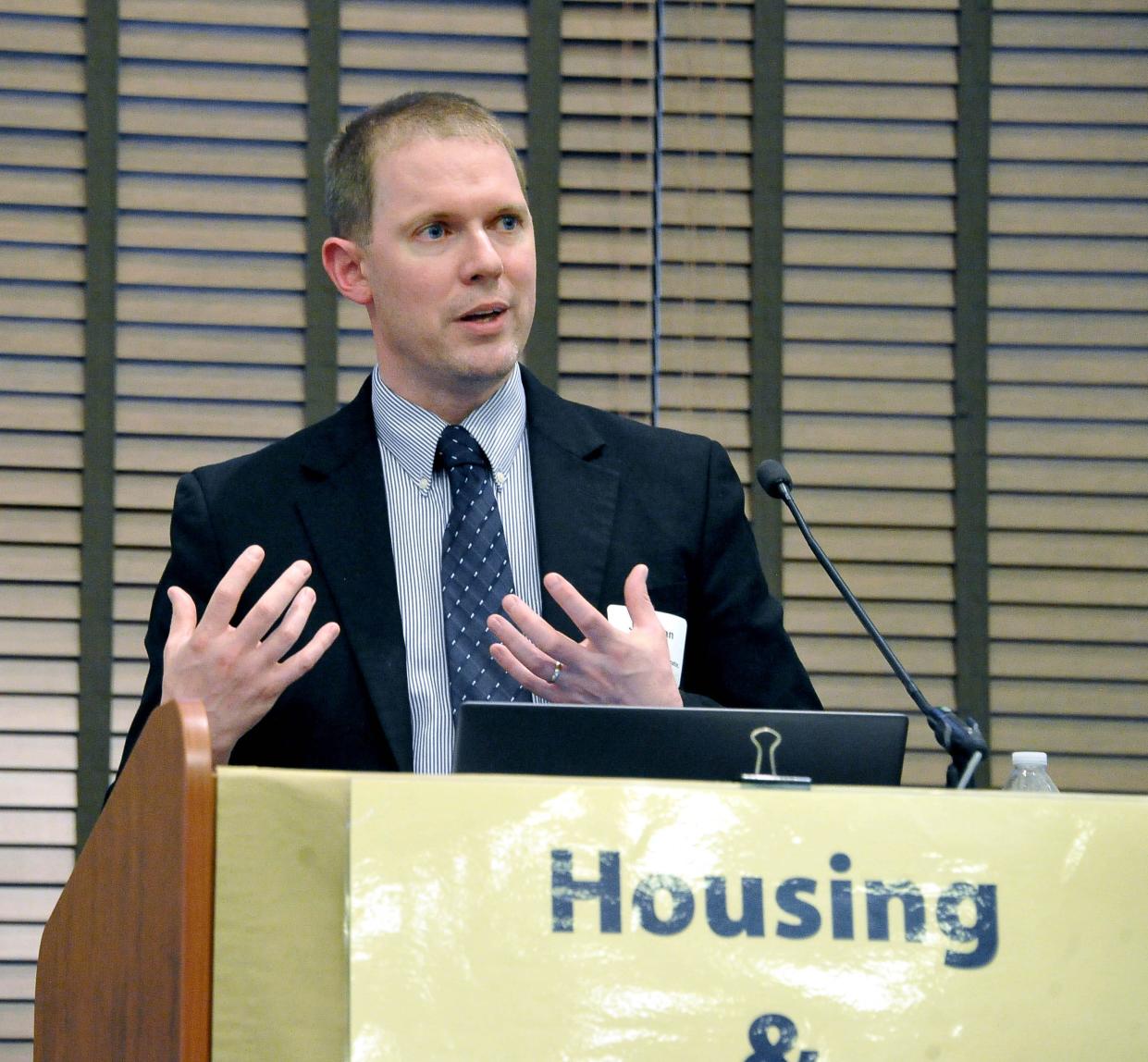
Millea: Wooster focusing on planning 'in the area of housing'
"Housing is a separate field in and of itself," said Jonathan Millea, development coordinator for Wooster. "Economic development is another major critical need."
"(The city) care(s) very deeply about providing services," Millea said, for the housed and unhoused.
It is "focusing very much on planning, particularly in the area of housing," he said.
"Where we can, we are employing specific programs," including the Wayne County Land Bank (Wayne County Land Reutilization Corporation) to reuse delinquent and abandoned properties; the city transportation program serving between 7% and 9% of Wooster households whose members walk to and from work daily; CHIP federal grants to repair and rehabilitate homes for low-income residents; and the Community Reinvestment Area Program incentives to improve and expand properties in strategic areas and construct new housing.
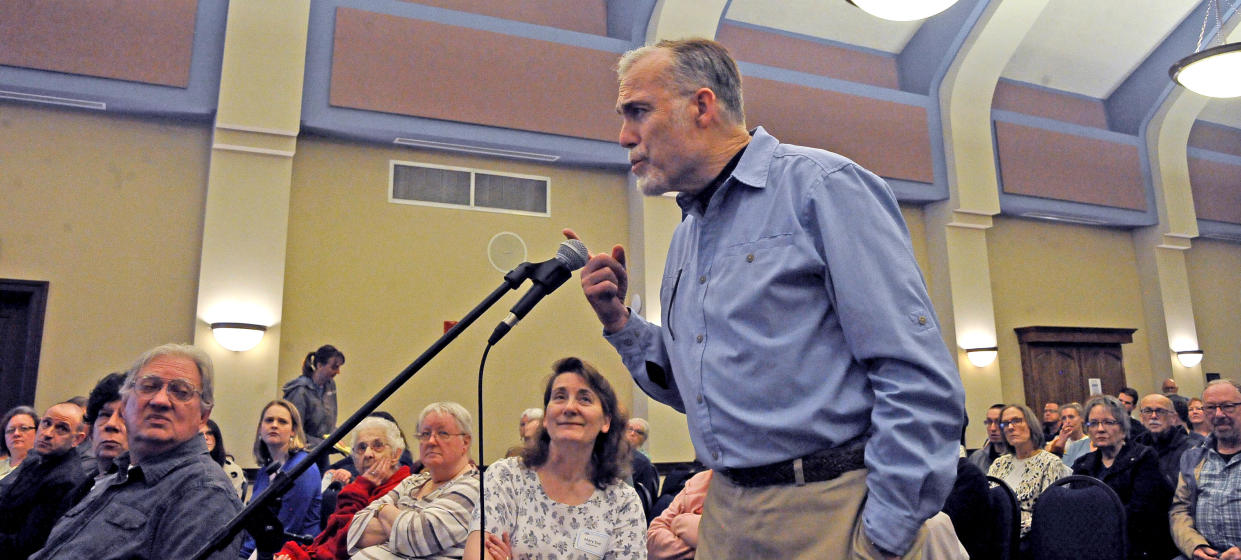
"We are also focused on fair housing (for those experiencing discrimination) and property maintenance," Millea said, in addition to pursuing facilities planning for the future.
'We know we have a housing crunch'
"We know we have a housing crunch," Millea said, and are "finding new ways to welcome people into our community."
Adequate housing is needed for people employed in Wooster, he said, "and they're not finding that."
Focus areas identified for the city are the Arts, East Liberty and hospital districts; and Smithville Western and Geyers Chapel Road.
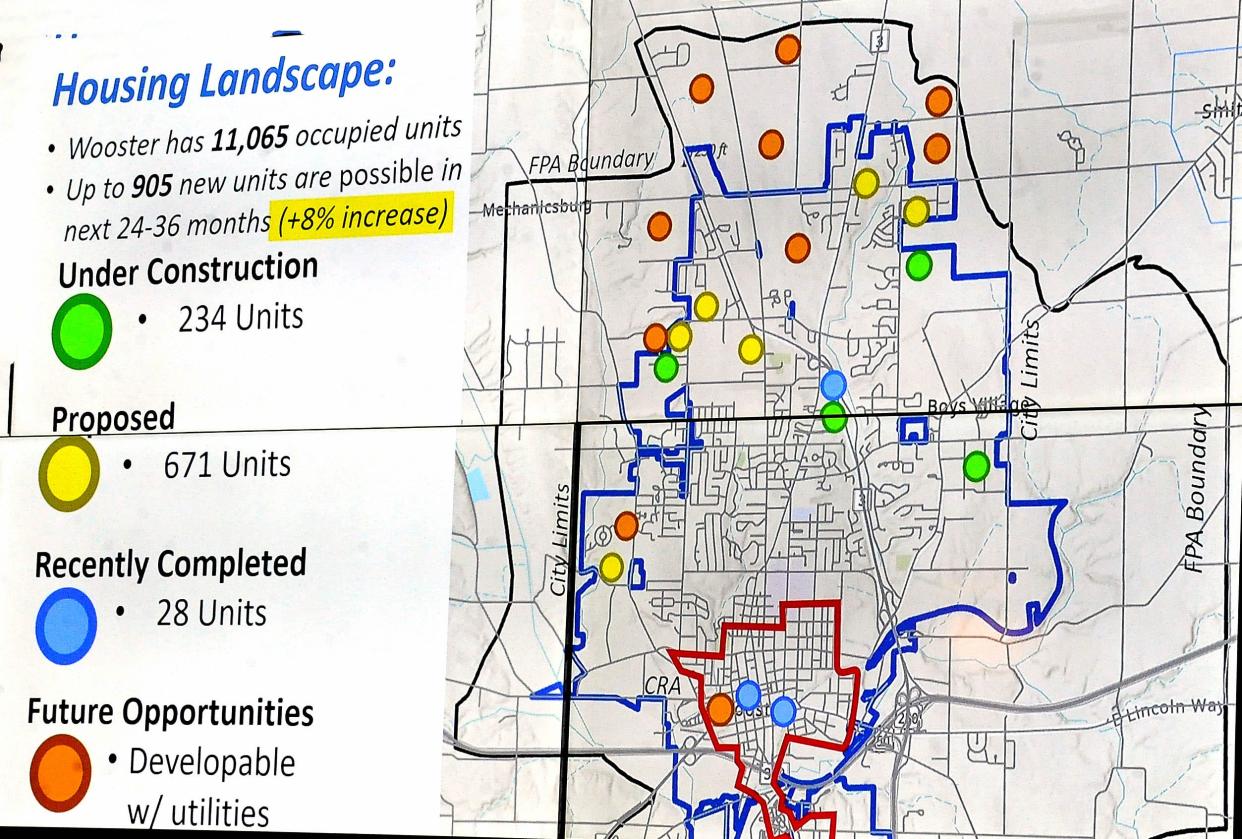
Wooster also is asking the question, "How can we encourage people to move back to the downtown area," keeping our community "occupied and vibrant," he said.
New housing is expensive, Millea said, but plays a part in lowering the tax burden overall.
"Affordable housing is the number one issue of unmet needs in our community," Fox said.
Along with the Land Bank, a "really exciting" tool is Welcome Home Ohio, he said.
Through WHO workforce housing, six to eight single family homes are planned for Rebecca Street. Future grants will fund multi-family homes and renovations in Rittman, Orville and West Salem. One of the stipulations for WHO is homes cannot sell for more than $180,000 during a 20-year compliance period.
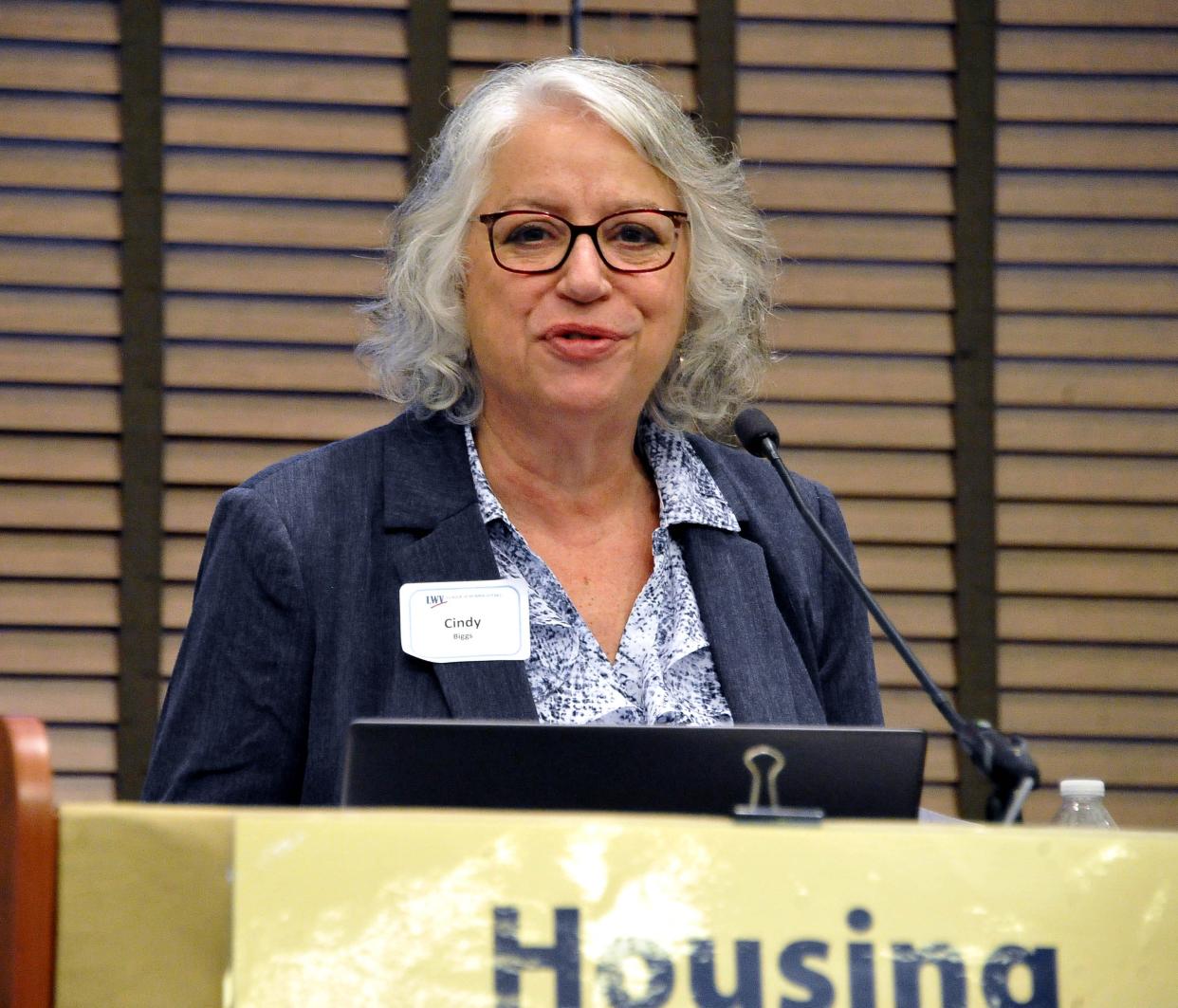
Addition grant programs include lead abatement for 20 Wayne County properties, demolition site preparation for 11 hazardous and dilapidated properties, new construction of 10 houses for purchase by low to moderate income families and asbestos remediation for the Fredericksburg school building.
One of the new developments to be constructed is the 42-unit affordable apartment complex at 2775 Cleveland Road in Wooster.
The forum was moderated by Cindy Biggs, League of Women Voters of Wayne County; and sponsored by the League of Women Voters, Community Action Wayne/Medina, the Wooster Homelessness Task Force, Homeward Bound of Wooster and Wayne County, and the Wayne County Housing Coalition.
This article originally appeared on The Daily Record: Wayne County Point in Time Count showed 110 homeless last year
